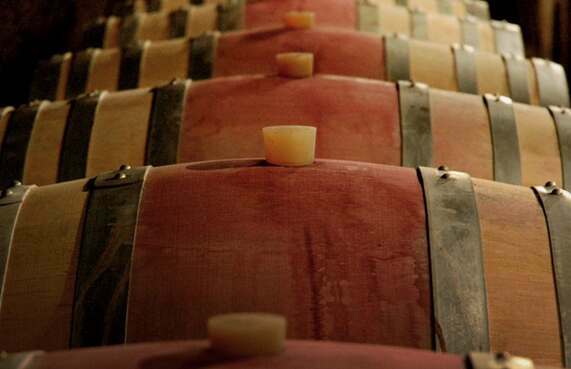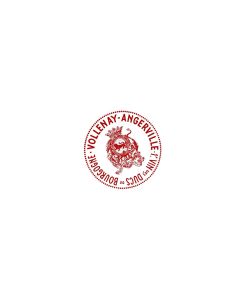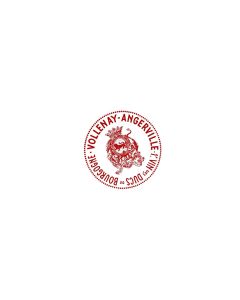Domaine Marquis d'Angerville
Once part-owned by the Dukes of Burgundy, this fifteen hectare Domaine lies at the very heart of Volnay.
History
Domaine Marquis d’Angerville has been owned by the same family for more than two centuries and, over the previous three centuries, by the Dukes of Burgundy and Kings of France.

The first record of the estate, in the village of ‘Vollenay’, was in 1507. In 1804, Baron du Mesnil acquired the Clos des Ducs and the surrounding plots – Taillepieds, Caillerets and Champans – which, in the 12th century, had formed part of the famous holdings of the Dukes of Burgundy. In the second half of the 19th century, the estate passed to Baron du Mesnil’s son, Eugène du Mesnil.
On his death in 1888, Eugène du Mesnil, without direct heirs, bequeathed it to his nephew and godson, Sem, Marquis d’Angerville, then aged 15. Sem took possession almost 20 years later, after the phylloxera crisis that ravaged the vineyard at the end of the 19th century.
From 1906, the recently renamed Domaine Marquis d’Angerville began to reconstruct its vineyards, replanting them with what are now the prized Pinot d’Angerville clones.
Sem d’Angerville was an early adopter of estate bottling and exports, initially focused on the United States. He was also a founding member of the National Institute of Appellations of Origin, the INAO. When he died in 1952, his son Jacques took over the domaine.
As quality driven as his father, Jacques d’Angerville expanded the domaine’s reputation and did much to raise the image of Volnay.
He held positions on several Burgundian bodies, including as chairman of the BIVB predecessor. He died prematurely in July 2003, leaving behind 52 vintages and a magnificently maintained estate. Jacques’ son Guillaume d’Angerville took over the domaine in 2003.
He is supported by his brother-in-law, Renaud de Villette, who worked alongside Jacques d’Angerville for 15 years, thereby ensuring the family-run continuity of the estate.
Cellar
“Cool, late vintages like 2021 are good for yeasts and better for vinification.”
The grapes are 100% destemmed and transferred to vats. They are cooled before fermentation, which lasts 15-18 days, with a gradual and controlled rise in temperature, reaching a maximum of 30-32°C. Extraction focuses on remontage (pumping over) rather than pigeage (punching down).
Once fermented, the must is gently pressed and the wine descends by gravity into oak barrels, in the cellars directly beneath the cuverie.
The maximum proportion of new oak has declined and is now around 20% for the premiers’ crus. The wines remain in barrel for around 18 months, with malolactic conversion occurring in spring or early summer following harvest.
Several weeks before bottling, the wines are transferred to tank to blend and settle. Fining and filtration are only used when absolutely necessary and only ever on a small proportion of the wine.
The wines are bottled using corks from Trescases.

The Vineyards

The Marquis d’Angerville Pinot Noir clones are unique, producing particularly small grapes. These make for a high ‘skin to juice ratio’ and rich tannins, affording the wines a natural substance and presence.
The domaine’s holdings were replanted following phylloxera by Guillaume d’Angerville’s grandfather, Sem, shortly after his arrival at the domaine in 1906. A century later, in 2006, the domaine began conversion to biodynamic viticulture. It is now wholly biodynamic.
THE VINEYARDS IN NUMBERS:
The domaine has 16.5 hectares (ha) of vines
---
…or 6% of the total 280ha in Volnay
---
Of these, 12.9ha are premier cru
---
…which is 12% of Volnay’s total 110ha premier cru vineyard
VINEYARD AREA IN HECTARES (HA) AVERAGE AGE OF VINES (YEARS)
Meursault 1er Cru Santenots 1.05 20-25
Volnay Village 0.49 60-65
Pommard 1er Cru Combes Dessus* 0.38 50-55
Volnay 1er Cru 0.97 20-25
Volnay 1er Cru Clos des Angles 1.07 60-65
Volnay 1er Cru Fremiets 1.58 30-35
Volnay 1er Cru Caillerets 0.65 30-35
Volnay 1er Cru Champans 3.98 40-45
Volnay 1er Cru Taillepieds 1.07 30-35
Volnay Clos des Ducs 1er Cru Monopole 2.15 40-45


